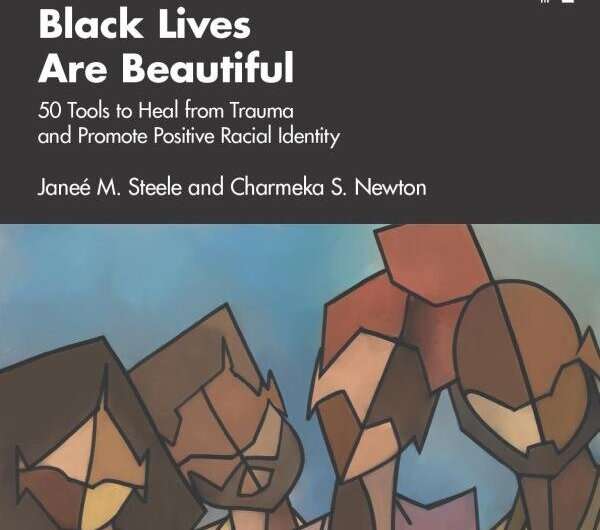This article has been reviewed according to Science X's editorial process and policies. Editors have highlighted the following attributes while ensuring the content's credibility:
fact-checked
trusted source
proofread
Signs you could be suffering from racial trauma, and tools for healing, according to therapists

Research has shown that repeated exposure to racism, directly or indirectly, impacts long-term mental health. Now, a licensed professional counselor and psychologist have released a toolkit to not only identify racial trauma but also to heal from it.
In the United States, depression and anxiety are on the rise in African Americans and the evidence suggests that racism is a contributing factor, creating a ripple effect on mental health.
Janeé M. Steele Ph.D. and Charmeka S. Newton, Ph.D. are licensed mental health professionals and scholars who specialize in culturally responsive therapy. They say, "In the Black community there can be a real resistance to our own trauma—for example, if I wasn't exposed to physical abuse, is it really that bad?
"But this kind of systemic, permeating racism that exists all around us has a real and physical impact on our minds and bodies. This is trauma."
Drs. Steele and Newton have joined forces to research and collate tools to tackle racial trauma. Their book, "Black Lives Are Beautiful: 50 Tools to Heal from Trauma and Promote Positive Racial Identity," has just been released.
Cultural stereotypes
As well as overt exposure to direct racism, Drs. Steele and Newton argue racial trauma can be caused in a number of ways—including transgenerational trauma due to historical oppression.
The experts explain that trauma causes chronic stress which lives in the body and can be felt like a rush of energy to the chest or stomach. These physical symptoms can be prompted by a range of external triggers—such as race-based violence reported in news or social media.
Repeated exposure to these stressors can impact the brain—creating more of the "stress" chemicals that affect memory and fight/flight responses. This means the brain remains hypervigilant and unable to relax.
"This could present itself as hypervigilance around threats to safety, anxiety about the way one is perceived—choosing certain clothes and avoiding certain places," the authors explain. "Because racialized trauma is a result of accumulated effects over time, you may not even be aware that your reactions are in response to your encounters with race."
Internalized racism
The experts also explain the impact of internalized racism for Black people, which often leads to self-hatred and a low sense of self-worth.
"In Western culture, White cultural standards are still upheld as the gold standard—and the beauty and cultural norms of other racial groups are portrayed as inferior," Drs. Steele and Newton.
The experts explain that messages of inferiority include television shows that depict Black people as unintelligent, criminal, prone to violence, and sexually promiscuous; the underrepresentation of Black people in positions of leadership and power; and the lack of justice received by Black people in our judicial systems.
"Internalized racism sounds like it might be easy to identify in yourself, but it could look like simply choosing a different pair of shoes to fit in with others—it is about altering your appearance or behavior to fit into white cultural norms," Drs. Steele and Newton explain.
Tools for healing
As well as helping Black people to identify racial trauma, "Black Lives Are Beautiful" also offer tools for healing.
The experts have collated a trauma checklist to help identify racial trauma, including feeling guarded around white people, having witnessed Black people being mistreated, and feelings of helplessness when hearing about racism in the news.
As well as helping to acknowledge the trauma, the experts provide a list of tools for coping, including mindfulness, physical relaxation techniques, and mental exercises including compassion meditations, positive affirmations, a self-esteem plan, and visualization tools.
Recognizing how social media can be triggering, they also offer tips to navigate the online world with well-being in mind—such as following uplifting content creators and taking regular breaks.
Drs. Steele and Newton say, "Because of racism, many people of color lead lives full of worry, with a constant sense of being on guard. We might suppress or deny feelings about racism, or feel conflicted about talking about it. Dealing with these thoughts and feelings repeatedly and over a prolonged period of time can eventually result in damage to mental and physical health.
"We want to give people the tools to identify their trauma, and move forward with their healing."
More information: Black Lives Are Beautiful: 50 Tools to Heal from Trauma and Promote Positive Racial Identity. www.routledge.com/Black-Lives- … p/book/9781032117423




















